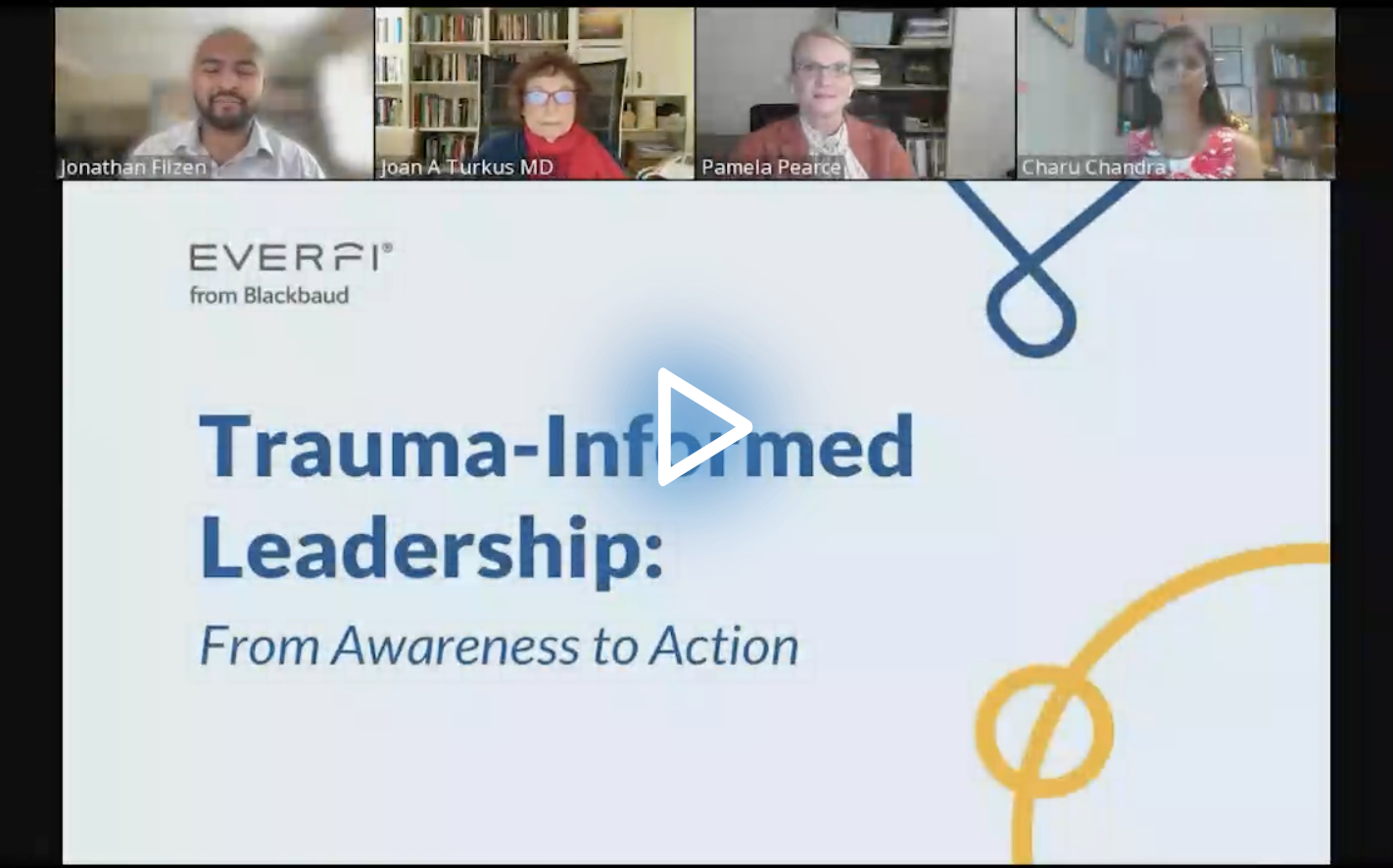Trauma-Informed Leadership: Taking the First Steps
Watch the Recording Listen to the Podcast
If a student’s brain is tuned into defending itself all the time, then how can the student focus on learning? That’s just one question facing educators as they try to create a safe, supportive educational environment for students impacted by trauma.
During the edLeader Panel “Trauma-Informed Leadership: From Awareness to Action,” the panelists offered insights into how trauma impacts students and strategies for developing systems to aid both educators and students.
First, trauma can be any event that is frightening, violent, dangerous, or overwhelming. It can be ongoing (e.g., bullying) or a one-time occurrence (e.g., a car accident) and there is no measure of how big or small an event can cause trauma. In addition, the trauma could be happening in school, at home, or out in the community. What’s important to recognize is how the trauma is affecting the student.
Second, trauma stays with people for a long time and can affect them emotionally, behaviorally, and physically. With children, this is especially harmful because the brain continues to develop until the mid-20s, meaning that the brain is still more vulnerable to impact from external stresses.
The impact doesn’t end with adulthood. Those who had Adverse Childhood Experiences (ACE) may be more prone to social problems, emotional and cognitive impairment, and even early death.
Once schools recognize the need for trauma-informed leadership, though, there are some key steps to take.
Build awareness among all staff on how trauma can impact students.
Provide them with the training they need to not only recognize warning signs but also understand how this could hinder learning, social interactions, etc.
Create a team that focuses on these students and their families.
Have a dedicated behavioral health team that is available whenever the students need them. While employing mental health professionals is preferable, schools can also train teachers to lead these teams.
Partner with local healthcare resources.
If the school doesn’t have a clinical team, they can collaborate with the family and look for a community-based mental health provider. Local hospitals and mental health organizations are also wellsprings of resources and are typically eager to share and work with schools.
Have a multi-tiered plan for support.
In addition to the dedicated team, there needs to be a plan in place for how to support each student, including offering resources in different languages, for different cultural backgrounds, etc. Moreover, since students are only in school for a fraction of the week, they also need strategies to support them at home.
Offer safe spaces for staff as well.
Working with students who’ve experienced trauma is likely to bring up unresolved issues with the staff. Make sure there’s a plan to take care of their needs too. If they feel safe and supported, then they are more able to help the students.
Overall, school leaders need to remember that trauma-informed care is an ongoing process made up of big and small moments. It can be greeting students each day and asking them about their families, or providing them with mental health plans. The key is consistent and continuous efforts.
Learn more about this edWeb broadcast, “Trauma-Informed Leadership: From Awareness to Action,” sponsored by EVERFI.
Watch the Recording Listen to the Podcast
Join the Community
Creating a Positive School Climate is a free professional learning community that provides all education stakeholders with a place to collaborate on improving the learning environments of our schools to make them safe places for all students to reach their full potential.
From grade school through retirement, EVERFI’s free digital education curriculums empower learners of all ages to make safe, smart, and informed decisions. We bring together the public and private sectors so K-12 teachers can equip today’s learners with the skills they need to become tomorrow’s leaders.
Blog post by Stacey Pusey, based on this edLeader Panel.






Comments are closed.